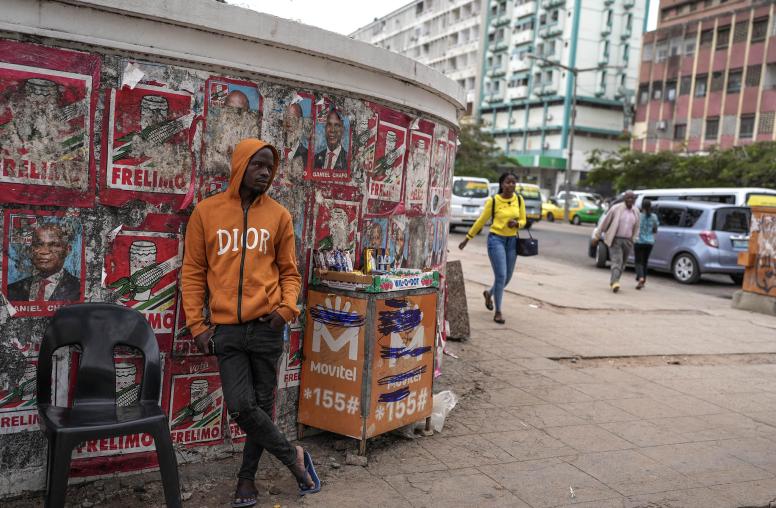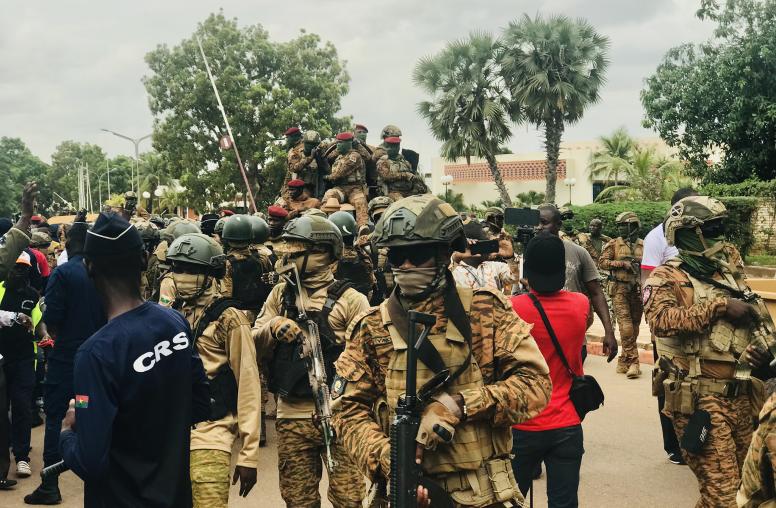Research & Analysis
U.S. Institute of Peace’s articles, reports, tools and other features provide policy analysis, research findings, and practitioner guides. These publications examine critical conflict issues at the center of the Institute’s work to prevent and resolve violent conflict.
The views expressed in these publications are those of the author(s).

Joseph Sany on the Rwanda-DRC Conflict and the Risk of Regional War
After decades of poor governance, ethnic tensions and illegal resource exploitation in the mineral-rich eastern Democratic Republic of the Congo, Rwandan-backed rebels’ capture of Goma “has the potential to bring … seven countries into [the] conflict” and ignite a wider regional war, says USIP’s Joseph Sany.

Amid Mozambique’s Spiraling Crisis, What Role Can the U.S. Play?
Since its October general election, Mozambique has been experiencing spiraling, deadly political violence. Many Mozambicans, including the leading opposition candidate, saw the victory of the ruling Frelimo party as fraudulent. Frustration with decades of single-party dominance is mounting. Today, some Mozambicans are looking to international help to save their country, one of the poorest in the world, from a possible return to war. Time is of the essence for such diplomatic intervention. Given that few African countries receive as large a U.S. development commitment as Mozambique, the spotlight is on the United States.

In Africa, the Need to Engage with Democracies and Coup Regimes
Three West African coup leaders — a general, a colonel and a captain — gathered last weekend to formally ally their regimes in Niger, Mali and Burkina Faso. Their meeting dramatized two realities for Americans and allies who hope to see our children live in a world governed by laws rather than brute force.

Joseph Sany on the U.S. Withdrawal from Niger
The U.S. reached an agreement with Niger’s military junta to close two military bases in the country in what amounts to a “tactical setback” for counterterrorism efforts in the Sahel. But the closure also “forces the U.S. to review its military posture in the region,” says USIP’s Joseph Sany, adding “there may be other options.”

For Peace in Africa, Boost Regional Blocs — Like West Africa’s ECOWAS
As the United States and international partners work to stabilize Africa’s Sahel region — and to prevent its warfare, violent extremism and armed coups from metastasizing into Africa’s densely populous and strategic Atlantic coast — the West African multinational bloc, ECOWAS, has proven its value in resolving crises and promoting stability. Yet, as global security threats have evolved, ECOWAS, like other multinational bodies, needs updated capacities to meet new challenges. International democracies’ most effective initiative to support West Africa’s stability would be to partner with West Africans to strengthen their vital regional community. A similar strategy is valid across Africa.

Critical Minerals in Africa: Strengthening Security, Supporting Development, and Reducing Conflict amid Geopolitical Competition
The United States Institute of Peace convened a senior study group to explore the role Africa plays in the United States’ efforts to diversify US critical mineral supply chains and how new investment in partnerships with African countries could help drive economic development and strengthen peace and security on the African continent. Based on meetings and interviews with relevant technical, operational, and policy experts, the study group developed multiple recommendations for the United States to support mutually beneficial public and private partnerships with African nations.

Senegal just saved its democracy. That helps all West Africa.
Senegal’s dramatic transfer of presidential power this week highlights that West Africa, routinely seen as a zone of democratic erosion and failure, includes an arc of resilient coastal democracies — from Senegal to Liberia, Ghana and Nigeria. The Senegalese people’s resolute reversal of last month’s constitutional crisis shows that U.S. and international efforts to counter violent extremism and military coups can reinforce a potent West African democratic constituency. Vital next steps include these: supporting Senegal’s democratic forces in shifting from “campaign mode” to inclusive governance; promoting economic investment to bolster youth employment and rule-of-law reforms; and energizing a West African democratic alliance against extremism and coups.

Suddenly, Senegal Is a New Risk for Democracy in Africa
The sudden actions by Senegal’s president to postpone this month’s presidential election by 10 months threaten to seriously undermine political stability and peace in a nation that has been a resilient democracy in West Africa, where multiple military coups d’état have occurred in recent years. This move poses risks of authoritarianism, violence and economic setbacks for Senegal’s 17 million people, and deeper regional insecurity. Friends of Senegal and democracy, in the United States, Africa and beyond, must unite behind the clear desire of Senegal’s people to maintain peaceful, freely elected democracy under its constitution.

Joseph Sany on Secretary Blinken’s Africa Tour
U.S. Secretary of State Antony Blinken recently made diplomatic stops across West Africa to continue building U.S.-Africa cooperation. However, USIP’s Joseph Sany says, “The U.S. has to ensure that the speeches are followed by deed,” adding that “African countries will also have to play their part.”

Chad’s Political Transition at an Inflection Point
On December 17, Chadians will vote in a referendum to approve a new constitution for the country nearly three years into a protracted, at times turbulent political transition process. The constitutional referendum is expected to pave the way for President Mahamat Déby to run for president in the 2024 national elections after leading the country since 2021, and adjust Chad’s system of governance to be a unitary, non-federal state with increased decentralization and territorial autonomy.